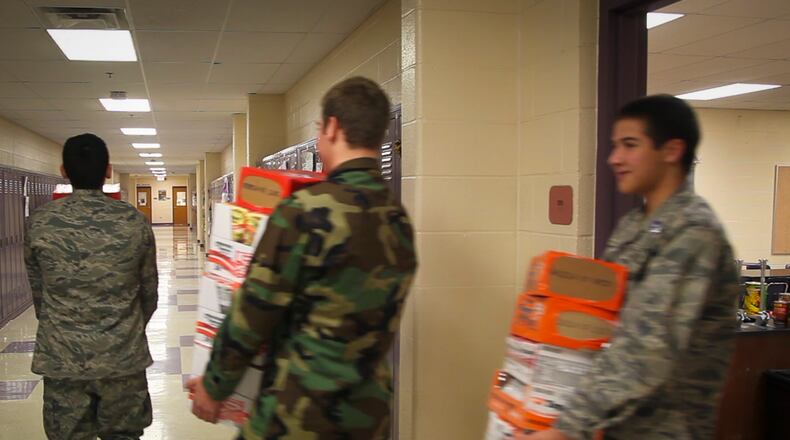“Everybody is looking for ways to fill the teacher shortage and be creative,” Allyson Couch, Oakwood education services director, said of the district’s deal with Operation Socrates.
Kettering and Centerville schools said they are also looking into the possibility of partnering with the nonprofit, a national organization which aims to aid the transition of military veterans into teaching.
Couch said she learned about the program through the Montgomery County Educational Service Center.
“Tapping into the pool of former military personnel is a great way to get more people into the field of education,” MCESC Superintendent Shannon Cox said in an email.
Operation Socrates works with the Department of Defense to offer internships in which veterans are paired with a teacher for up to six months, according to its website. The DoD assumes the cost, so the partnerships are not charged to the districts, officials said.
While it can broaden Mad River’s teaching pipeline, the Operation Socrates deal also helps strengthen bonds to neighboring Wright-Patt for a district that has 583 students — or about 16% of its enrollment — with military ties, Superintendent Chad Wyen said.
A growing demand
“Many active duty (military) members explore the opportunity to go into K-12 education once they separate from service,” Wyen said in an email.
“Often times active-duty members separating from service have college degrees in STEM fields that have been difficult to fill in many districts. Operation Socrates can be beneficial in attracting service members in high demand K-12 math and science positions,” he added.
Couch expressed similar thoughts. She also said there “is a huge shortage” for school psychology jobs, and she has seen a dramatic drop in applicants for PreK-3 openings.
“If that continues to dwindle and dwindle and dwindle, eventually it dries up,” Couch said.
The number of people applying for open teaching positions in the state has dropped, officials said.
Education degrees accounted for 9.6% of all bachelor’s degrees awarded in Ohio public universities in 2009, but by 2018, that rate declined to 6.3%, according to the Ohio Department of Higher Education.
At the same time, bachelor’s degrees awarded across all fields went the other direction, rising from 38,493 to 49,963. But the total of education degrees during that span went from about 3,700 a year through 2014, to 3,180 in 2018.
A second career
Ohio’s elimination of fees for military veterans to teach and coach has enhanced opportunities for service personnel — which total about 800,000 in the state — to enter education as their second career, said vet Pete LuPiba.
LuPiba is state commissioner of the Military Interstate Children’s Compact Commission, which helps military families relocate.
While not familiar with Operation Socrates, LuPiba said it sounded similar to Troops to Teachers. That nationwide program, operated in Ohio by the state department of education, has helped tens of thousands of veterans transition into teaching since 1993.
A second career for vets in teaching “would be of great service to the community and to (the) country … Because at the end of the day, that’s the one profession that affects all other professions.”
Since expanding nationally in 2020, Operation Socrates has averaged about 100 veterans “in a phase of the pipeline at any given time,” said Zac Lois, a 2002 Army enlistee and organization founder.
Mad River and Oakwood both approved deals this year, but don’t expect to see the tangible results for some time. Couch said she hopes that will change in a year or two, while Wyen said Mad River is targeting three to five years.
Meanwhile, Centerville “will definitely explore” the program, according to Assistant Superintendent Dan Tarpey. More review is also needed in Kettering, but “this is certainly a consideration,” Assistant Superintendent Ken Miller said.
About the Author

